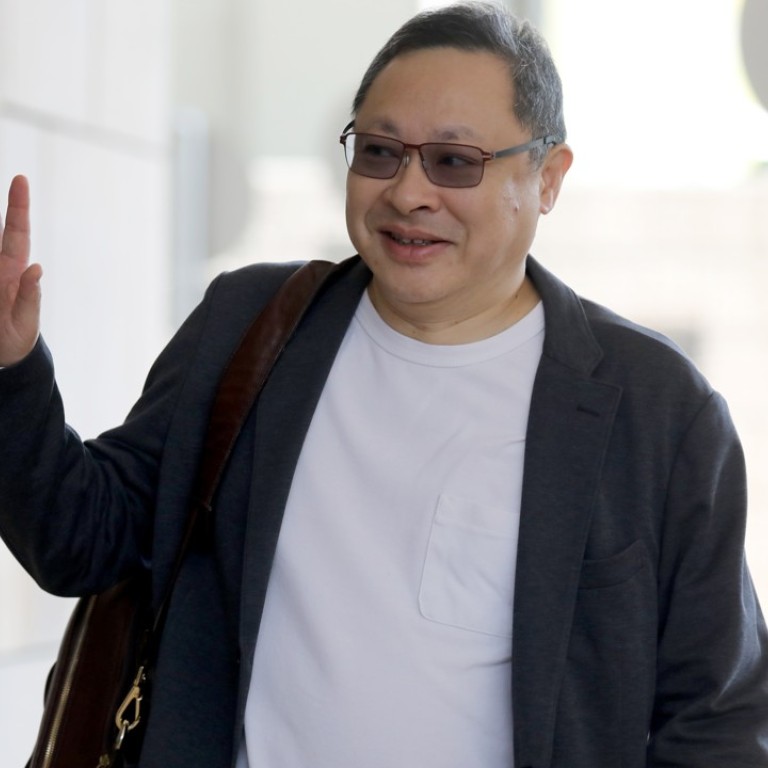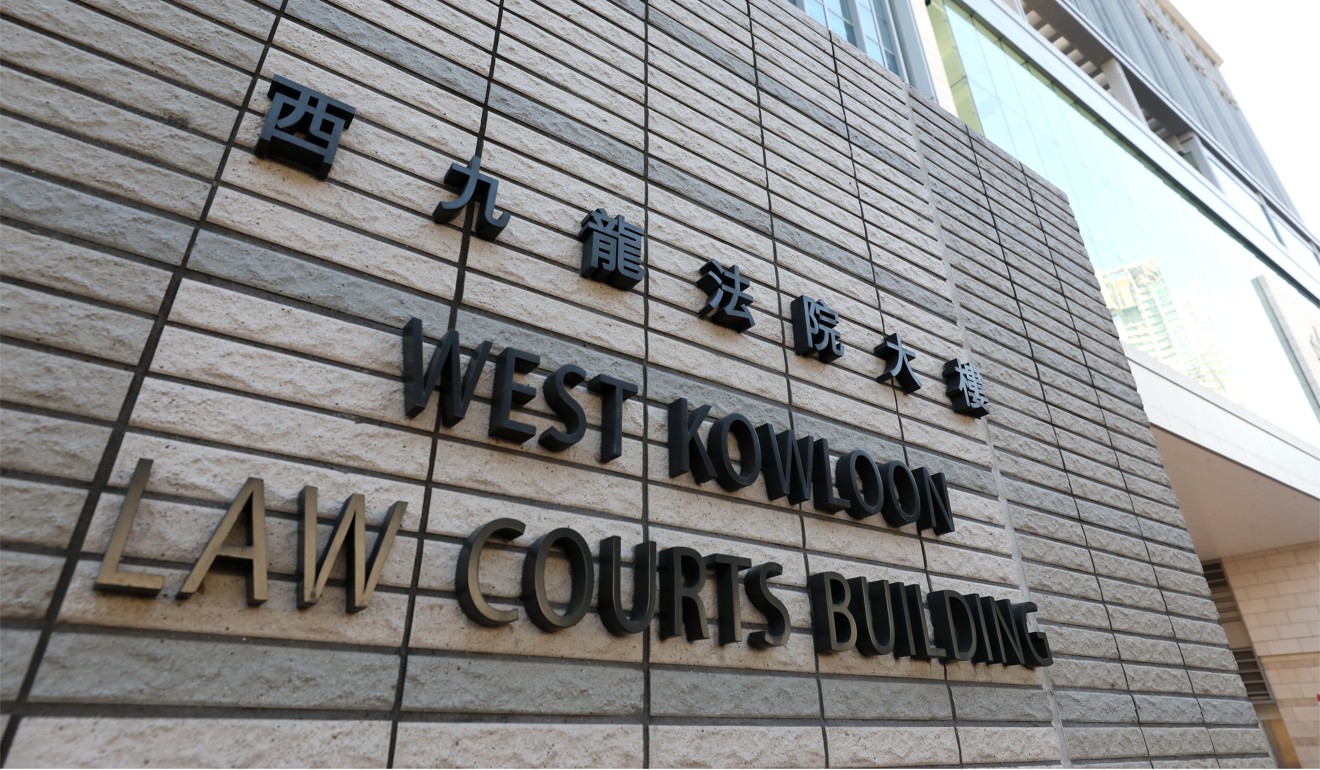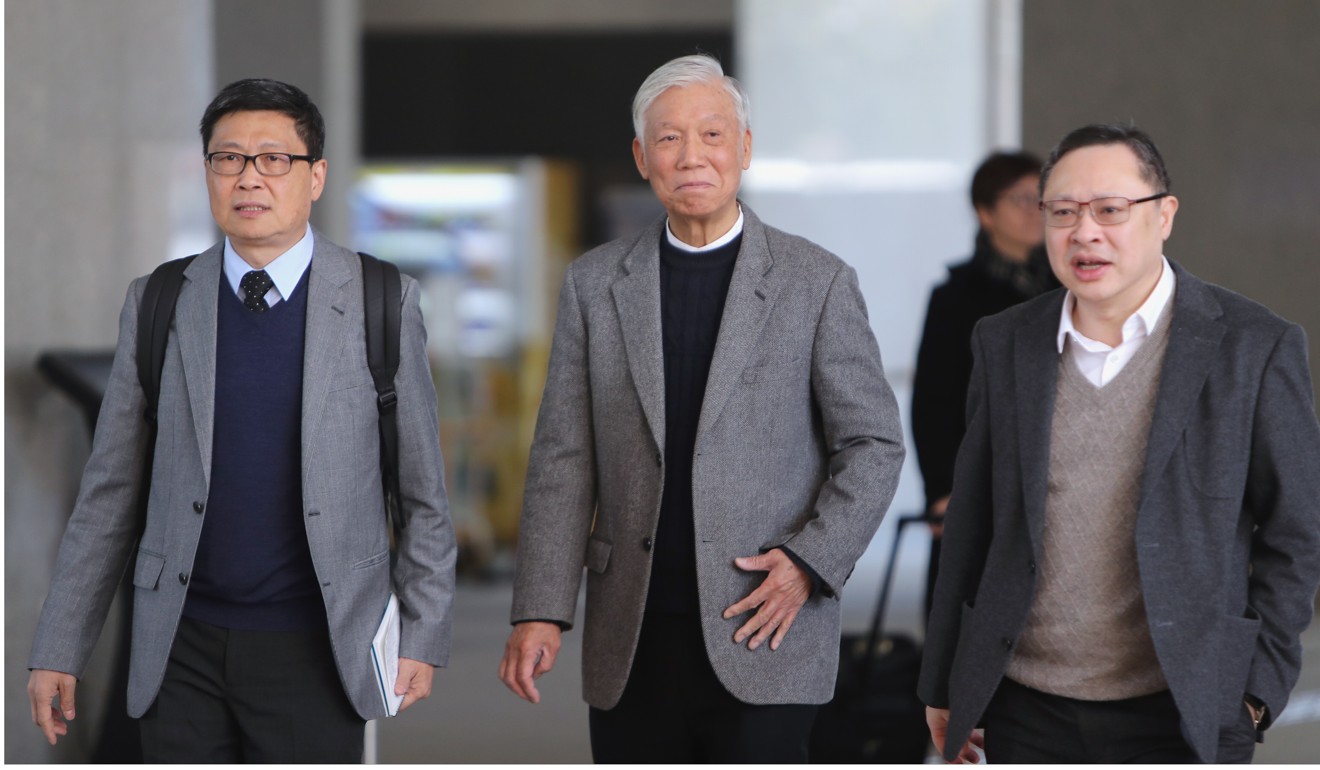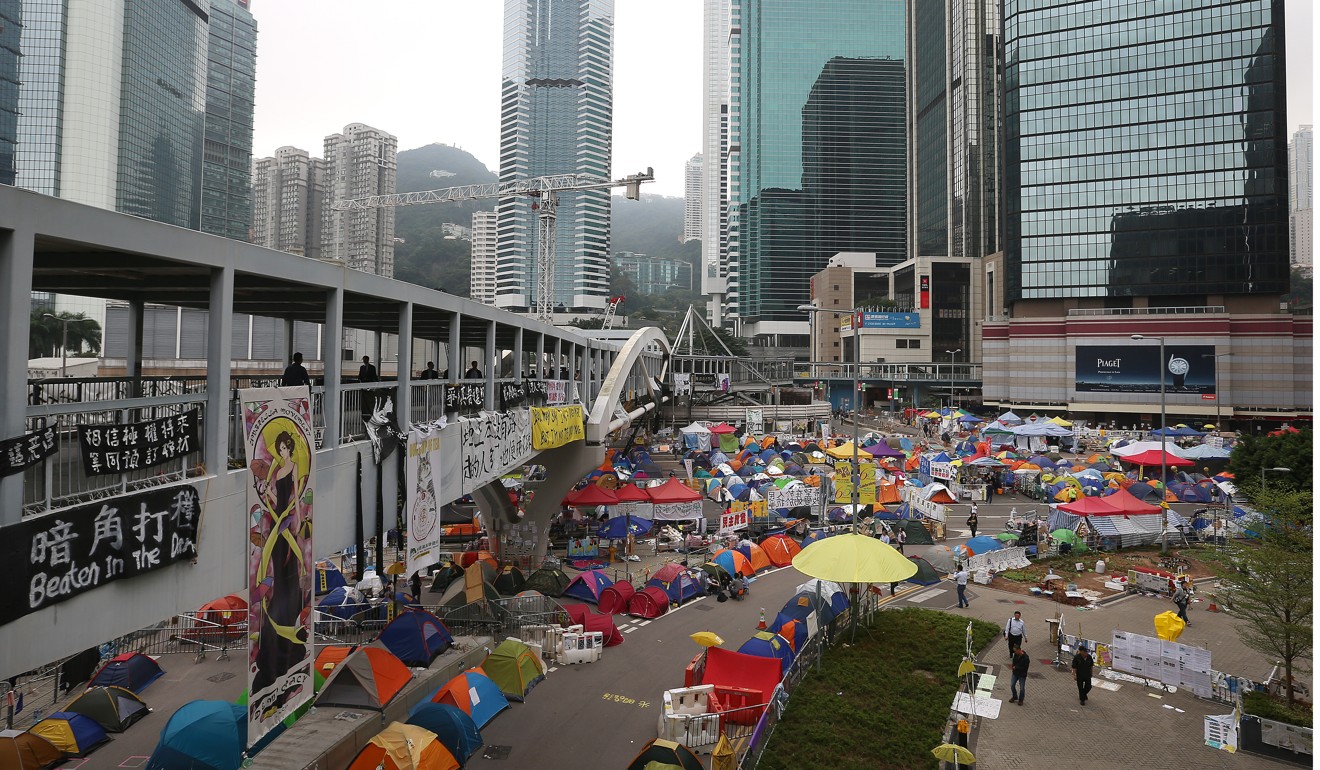
Hong Kong Occupy leader Benny Tai cites US civil rights activist Martin Luther King: ‘I’m not afraid of jail’, he tells court
- Tai gives unrepentant speech from the dock as trial on public nuisance charges draws to a close
A law scholar who co-founded Hong Kong’s Occupy democracy movement told a court on Wednesday he was not afraid of being jailed for his part in the 2014 protests, which brought sections of the city to a standstill for 79 days.
Benny Tai Yiu-ting, who is on trial alongside eight other leaders of the movement, said the group would have pleaded guilty if not for the “unnecessary and unreasonable” charges prosecutors had brought against them.
“If we are guilty, we are guilty of daring to share hope in this difficult time in Hong Kong,” the constitutional law specialist said.
The 54-year-old professor called the blocking of roads “proportionate” and “reasonable” during a speech from the dock in which he cited late American activist Martin Luther King Jnr, an inspiration for the campaign.

“An individual who breaks a law that conscience tells him is unjust, and willingly accepts the penalty by staying in jail to arouse the conscience of the community over its injustice, is in reality expressing very high respect for law,” Tai said, quoting King.
The speech was met with applause from supporters in the courtroom.
Tai told presiding judge Johnny Chan Jong-herng that the “Occupy Central with Love and Peace” movement had been non-violent but ballooned into something beyond their expectations or control.
Protesters only began to occupy main roads after police “irresponsibly” blocked them from less busy areas, Tai said.
Occupy trio should be held responsible for what they did a year before protest began, Hong Kong’s top prosecutor tells court
In his closing speech he was equally unrepentant.
“I am not afraid or ashamed to go to prison. If this is the cup I must take, I will drink with no regret,” he told West Kowloon Court.
The University of Hong Kong associate law professor said the civil disobedience movement had been the last yet reasonable resort after he and others realised Beijing would not help Hongkongers realise their “democratic dream” of more than three decades.

Tai and other protesters took exception in 2014 to a ruling by China’s top legislative body, the National People’s Congress Standing Committee, that stipulated vetting must be in place for candidates standing for elections under any system of universal suffrage.
Tai said the resulting democracy protests did not amount to a public nuisance, a day after prosecutors suggested otherwise in their closing speech.
Small fraction of Occupy protesters were there because of calls from movement’s founding trio, trial hears
He said the group’s original plan had been to hold the protest in the vicinity of Chater Garden in Central on a public holiday and weekend at the start of October, and wait until police arrested them.
But the demonstrations eventually kicked off in an adjacent location after student leaders holding a separate protest in Admiralty for the same cause turned to Tai and colleagues for help, the court previously heard.
Tai then formally declared the commencement of the Occupy protests on September 28, but he urged protesters to go to Tim Mei Avenue, a less busy road in Admiralty. Police stopped protesters from doing so, leading them to occupy nearby roads, Tai said.

“The police irresponsibly refused to reopen the access to the demonstration area,” he told the court.
On the same day, officers fired 87 rounds of tear gas, which Tai said “no one could have known” would happen. The gas rendered the situation out of control, he added.
Tai said the way prosecutors had pressed public nuisance charges had been improper. Judges in Britain had long cautioned that such charges should be brought with restraint, he said.
He and fellow founders Dr Chan Kin-man and the Reverend Chu Yiu-ming have denied three joint counts against them: one of conspiracy to cause public nuisance; one of inciting others to cause public nuisance; and one of inciting people to incite others to cause public nuisance.
Cardinal Joseph Zen defends Hong Kong Occupy leaders in court, praising them for preaching peace
Five other defendants, legislators Tanya Chan and Shiu Ka-chun, former student leaders Tommy Cheung Sau-yin, along with Eason Chung Yiu-wa and Raphael Wong Ho-ming, vice-chairman of the League of Social Democrats, have all denied two incitement charges.
Former Democratic Party lawmaker Lee Wing-tat has denied one count of incitement to commit public nuisance.
Barrister Gerard McCoy SC, representing Chan Kin-man and the Reverend Chu, said the tear gas was an “intervening event” that had left his clients no longer responsible for the protests.
Robert Pang Yiu-hung SC, for lawmaker Shiu, said whether the occupation was reasonable depended on its purpose, among other factors. He urged the judge to look at what they were fighting for.
“It is very hard to conceive of a more important and more significant issue in the political sphere in Hong Kong than that of the election for the chief executive,” Pang said.
The case continues.

